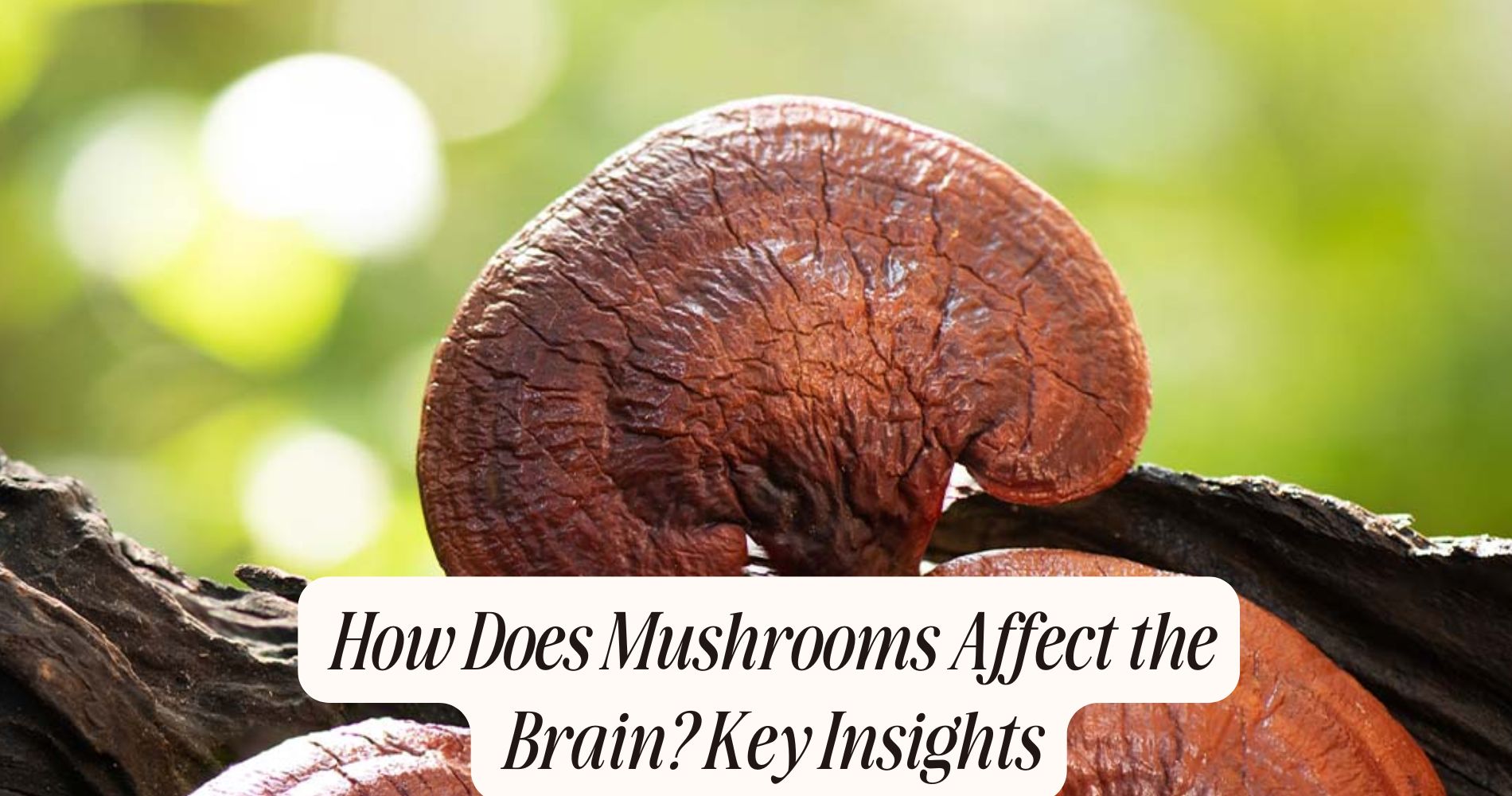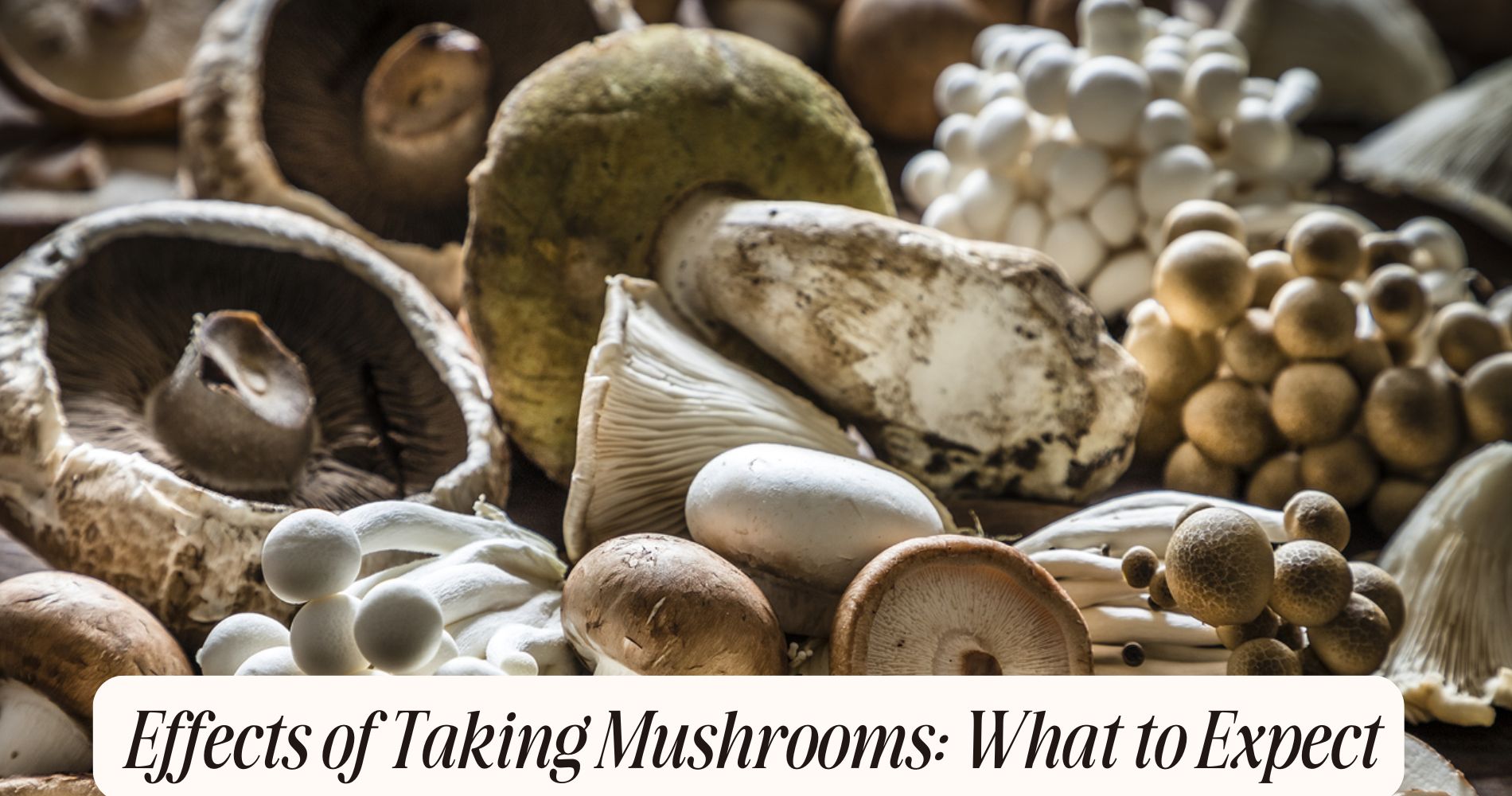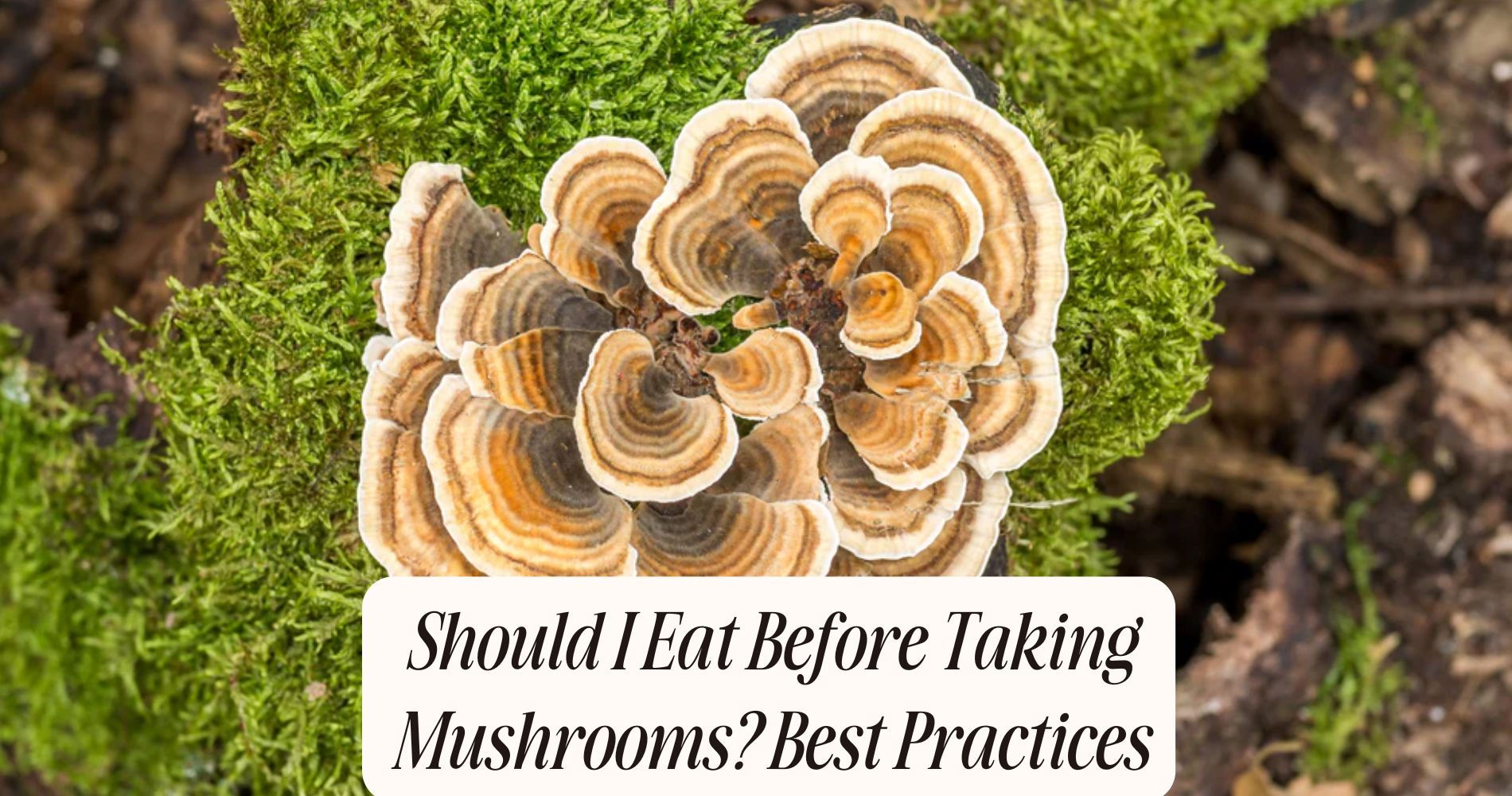
How Does Mushrooms Affect the Brain? Key Insights
How does mushrooms affect the brain? Mushrooms can greatly influence your brain's health and abilities. Edible varieties like lion's mane support cognitive function, while psilocybin mushrooms may enhance creativity and problem-solving skills. They interact with serotonin receptors, promoting mood improvement and reducing anxiety. Medicinal mushrooms, such as reishi, help protect your brain by reducing inflammation and supporting neurogenesis. Research shows potential long-term benefits for mental health through responsible use of psilocybin. Overall, mushrooms provide unique pathways to boost brain function and well-being. There's much more to discover about their effects and future possibilities.
Types of Brain-Influencing Mushrooms
Mushrooms are more than just a culinary delight; they can also have profound effects on your brain. You'll find that different types of mushrooms offer unique benefits, ranging from edible varieties to psychedelic species. Edible mushrooms like shiitake and lion's mane not only enhance your dishes but also support cognitive function and overall brain health.
On the other hand, psychedelic species, such as psilocybin mushrooms, have garnered attention for their potential therapeutic effects on mental health. These mushrooms hold a significant cultural importance in various societies, often used in rituals and healing practices.
Moreover, medicinal uses of mushrooms like reishi and cordyceps are gaining popularity in holistic health circles, thanks to their anti-inflammatory and neuroprotective properties.

With the rise of interest in foraging techniques, you can even learn to identify and gather these mushrooms yourself, connecting you to nature and enriching your culinary applications.
Whether you're cooking a gourmet meal or exploring the depths of your mind, understanding the different types of brain-influencing mushrooms can open up a world of possibilities for your health and well-being.
Psilocybin and Cognitive Effects
Psilocybin mushrooms, often associated with altered states of consciousness, have sparked interest for their potential cognitive benefits. Research suggests that psilocybin may enhance cognitive functions like creativity, problem-solving, and emotional processing. When you take psilocybin, the dosage plays a vital role in determining its effects.
Lower doses may lead to mild enhancements in mood and creativity, while higher psilocybin dosages can result in profound shifts in perception and cognition. Many users report improved focus and clarity, allowing for deeper engagement with tasks or creative projects.
The experience can also lead to an increased sense of interconnectedness, which might help in rethinking problems from different perspectives. This cognitive enhancement can be particularly valuable in various fields, including art, science, and therapy.
However, it's important to approach psilocybin with caution. The effects can vary greatly based on individual tolerance, mindset, and environment. Responsible use, along with a clear understanding of psilocybin dosage, is essential for maximizing benefits while minimizing risks.
As the interest in psilocybin grows, ongoing research will continue to shed light on its potential cognitive advantages.
Neuroprotective Properties of Medicinal Mushrooms
Certain medicinal mushrooms are gaining attention for their neuroprotective properties, which may help safeguard brain health. These fungi, such as Lion's Mane and Reishi, are rich in compounds that promote neurogenesis stimulation. By encouraging the growth of new neurons, they support cognitive function and may protect against neurodegenerative diseases.

Additionally, medicinal mushrooms provide significant antioxidant benefits. Antioxidants combat oxidative stress, a key factor in brain aging and cognitive decline. By neutralizing harmful free radicals, these mushrooms help maintain cellular integrity and overall brain health.
Incorporating these mushrooms into your diet could enhance your brain's resilience. For instance, Lion's Mane has been shown to stimulate nerve growth factor (NGF) production, which is essential for the survival and function of neurons.
Reishi, on the other hand, has been associated with reducing inflammation, another vital aspect of protecting the brain.
While research is still ongoing, the potential of medicinal mushrooms in promoting neuroprotection is promising. So, if you're looking to support your brain health, consider adding these powerful fungi to your routine. They might just be the boost you need for a sharper mind.
Impact on Mental Health
The growing body of research on fungi highlights their potential impact on mental health, particularly through the use of psilocybin-containing mushrooms. These mushrooms have gained attention for their remarkable ability to promote mood enhancement and facilitate anxiety reduction.
When you consume psilocybin, it interacts with serotonin receptors in your brain, leading to changes in perception and emotional states.
Studies have shown that psilocybin can considerably alleviate symptoms of depression and anxiety, providing a sense of relief for those struggling with these conditions. Many individuals report experiencing a profound shift in their mood, often feeling more connected to themselves and the world around them.
This heightened emotional awareness can help you process past trauma and confront challenging emotions, fostering personal growth.

Moreover, the experiences derived from psilocybin use often lead to a deeper understanding of one's thoughts and feelings, which can contribute to long-term mental health benefits.
While the effects can vary from person to person, the potential for mood enhancement and anxiety reduction makes psilocybin mushrooms a fascinating area of study in the field of mental health.
Embracing this natural approach could open new doors for emotional well-being.
Future Research Directions
As researchers investigate deeper into the therapeutic potential of psilocybin, future studies are poised to explore a variety of exciting avenues. One key area is understanding how mushroom compounds influence brain connectivity. You might be surprised to learn that these compounds can potentially enhance communication between different brain regions, leading to improved emotional regulation and cognitive flexibility.
Another promising direction involves examining the long-term effects of psilocybin on neuroplasticity. By evaluating how these mushroom compounds encourage the brain to form new connections, researchers could unveil new strategies for treating conditions like depression and anxiety.
Additionally, exploring personalized medicine approaches could be beneficial. Future studies may look into how individual differences—like genetics and mental health history—affect responses to psilocybin. This could lead to tailored treatments that maximize benefits while minimizing risks.

Lastly, integrating advanced imaging techniques will allow researchers to visualize real-time changes in brain activity following psilocybin use. This could provide invaluable insights into the mechanisms behind its therapeutic effects.
Together, these research directions could greatly expand our understanding of how mushrooms affect the brain and pave the way for innovative treatments.
Support Brain Health with SUPER MUSHROOM GUMMIES
Curious about how mushrooms affect the brain? Well Gummies' SUPER MUSHROOM GUMMIES offer a convenient way to harness their brain-boosting power. Packed with 10 functional mushroom types, these vegan gummies support mental clarity, enhance focus, and promote calm, sustained energy. With a fresh wild berry flavor, they taste like your favorite candy while delivering real cognitive and immune support benefits. No jitters, no crashes—just a simple, tasty way to fuel your brain and body every day.
Frequently Asked Questions
Are There Risks Associated With Consuming Brain-Influencing Mushrooms?
Yes, there are risks associated with consuming brain-influencing mushrooms. You might experience potential side effects like nausea or anxiety, and long-term implications could affect your mental health or cognitive function. Always research before trying them.
How Can I Identify Psychoactive Mushrooms?
To identify psychoactive mushrooms, you'll need to focus on their visual characteristics. Look for specific colors, shapes, and gills. Research identifying species thoroughly, as many mushrooms can appear similar, and some may be toxic.
What Are the Legal Statuses of These Mushrooms Worldwide?
The legal statuses of mushrooms vary worldwide. You'll find that psychedelic research influences legal regulations, with some countries decriminalizing or allowing research while others maintain strict prohibitions. Always check your local laws before exploring.
Can Mushrooms Interact With Other Medications?
Yes, mushrooms can interact with other medications. You should always consult your healthcare provider to understand potential mushroom interactions and medication effects, ensuring your safety and avoiding adverse reactions from combining substances.
What Are the Historical Uses of Mushrooms in Different Cultures?
Throughout history, you've seen mushrooms play an essential role in various cultures, often tied to cultural significance and medicinal practices. From traditional healing to spiritual rituals, they're woven into the fabric of many societies.
Conclusion
To summarize, mushrooms can greatly influence your brain in various ways, from enhancing cognitive functions with psilocybin to offering neuroprotective benefits through medicinal varieties. Their positive impact on mental health is also gaining attention, making them a promising area for future research. As science continues to explore these fascinating fungi, you might find new insights that could change how you perceive and utilize mushrooms in your life. Stay curious and keep an eye on emerging studies!




